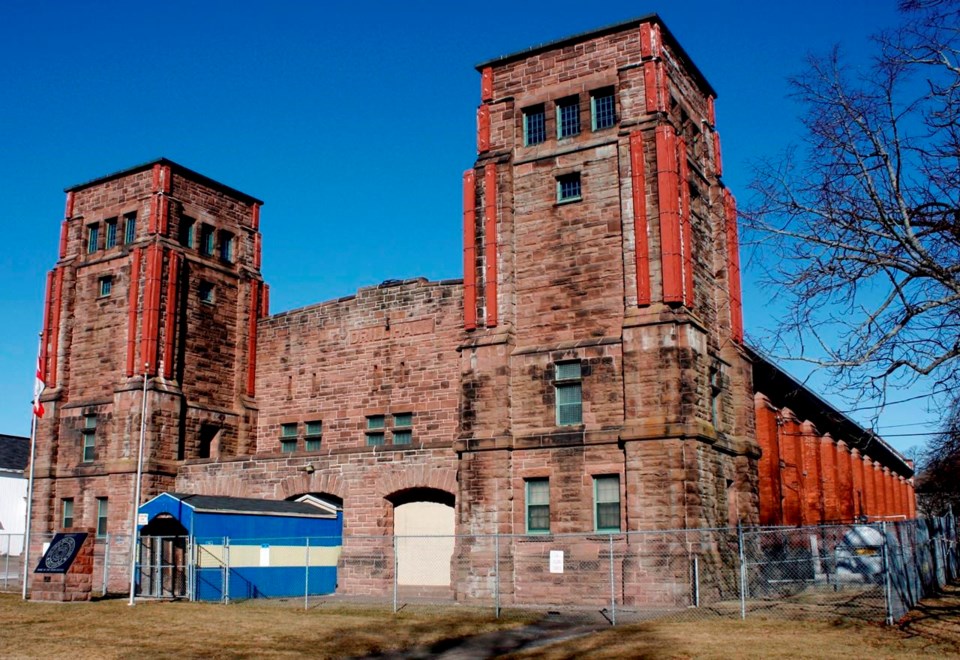HALIFAX — The federal government is planning to sell off the historic, century-old armoury in Amherst, N.S., to make way for new housing, but the town's mayor says that could be a bad idea.
"I'm sure there will be negative reaction," Mayor David Kogon said in an interview Wednesday. "Who would buy this structure to tear it down and build houses? It's unaffordable. It would be millions of dollars to demolish that building."
In the federal budget released Tuesday, the Liberal government said it will free up lands held by the Defence Department and Canada Post to make room for the construction of housing across the country.
The goal is to build 3.87 million new homes by 2031, adding two million homes to the 1.87 million the country was already on track to build. To help accomplish that goal, the Defence Department will work with the Canada Lands Co. to divest 14 surplus properties.
"Today, governments across Canada are sitting on surplus, underused and vacant public lands … that could be built on," the budget says.
"By unlocking these lands for housing, governments can lower the costs of construction and build more homes, faster, at prices Canadians can afford … The federal government will partner with the housing sector to build homes on every possible site across the federal portfolio."
Among those sites is the huge Amherst Armoury in northern Nova Scotia, built in 1915 to house the 85th Canadian Infantry Battalion, which played a crucial role in the battle at Vimy Ridge during the First World War.
The sandstone building, a recognized federal heritage building since 1990, was declared surplus in 2016 after the local army reserve unit moved out. But it is still used for community functions, concerts, military cadet training and to house the Nova Scotia Highlanders Regimental Museum.
"We have a historical society that wants to preserve that building," said Kogon, who stressed that he was expressing personal opinions, as he had yet to speak with town staff or other councillors. "The historical significance is very, very important to the veterans of our community and their families."
Elizabeth Smith-McCrossin, the area's Independent member of the provincial legislature, has been fighting to save the building since she was elected in 2017.
"I have been outspoken about it because people in our community don't support the divesting of that armoury," she said in an interview. "Right now, it's being used by our youth, by our cadets and it has a very important regimental museum."
She said the Defence Department should bring back the reserve unit and resume recruiting at the armoury. Instead, the department seems fixated on dumping an asset it no longer wants, she said.
"I think it's purely political spin," Smith-McCrossin said. "I think that they're using this … need for housing as an excuse … And it's also disrespectful to our veterans and to the people that have served the Canadian military from our community."
Smith-McCrossin said it would make more sense to invest federal dollars in improving the town's infrastructure and buying up relatively cheap vacant land for housing.
The armoury, which includes a drill hall, is also well known for its close connection to the North Nova Scotia Highlanders, who on June 6, 1944, were among thousands of Canadian soldiers sent to land on the beaches of Normandy during the D-Day invasion.
The infantry regiment landed on Juno Beach and advanced 10 kilometres inland, as did the Queen’s Own Rifles of Canada, the farthest advances of any units on D-Day. Also known as the North Novies, the regiment continued to fight in northwestern Europe until the end of the Second World War.
In all, 486 members of the regiment lost their lives while fighting overseas.
The local member of Parliament, Conservative Steven Ellis, said the federal government's decision to divest the property could mean handing it to local groups that want to preserve the property, but federal budget documents indicate the plan is for redevelopment of the site for housing.
"I would like to see divestiture mean that it is in a position to be used and repurposed with significant consultation with the local community," said Ellis, a former Royal Canadian Air Force member who was once the honorary colonel of the Nova Scotia Highlanders.
"It has special meaning for me … On the 75th anniversary of D-Day, I was wearing the Highlander kilt on Juno Beach and experienced that history as well."
Ellis said the armoury is in rough shape. "The roof is leaking and there are barrels of water that are inside the armoury itself," he said.
In Halifax, provincial Housing Minister John Lohr said the armoury has long been an important asset and public meeting space. "We would need to better understand the details before we could comment further," he said.
The building was temporarily closed in 2020 for an engineering review, which found its huge twin towers were in poor condition and that various repairs were needed within 10 years.
This report by The Canadian Press was first published April 17, 2024.
— By Michael MacDonald in Halifax
Michael MacDonald, The Canadian Press



